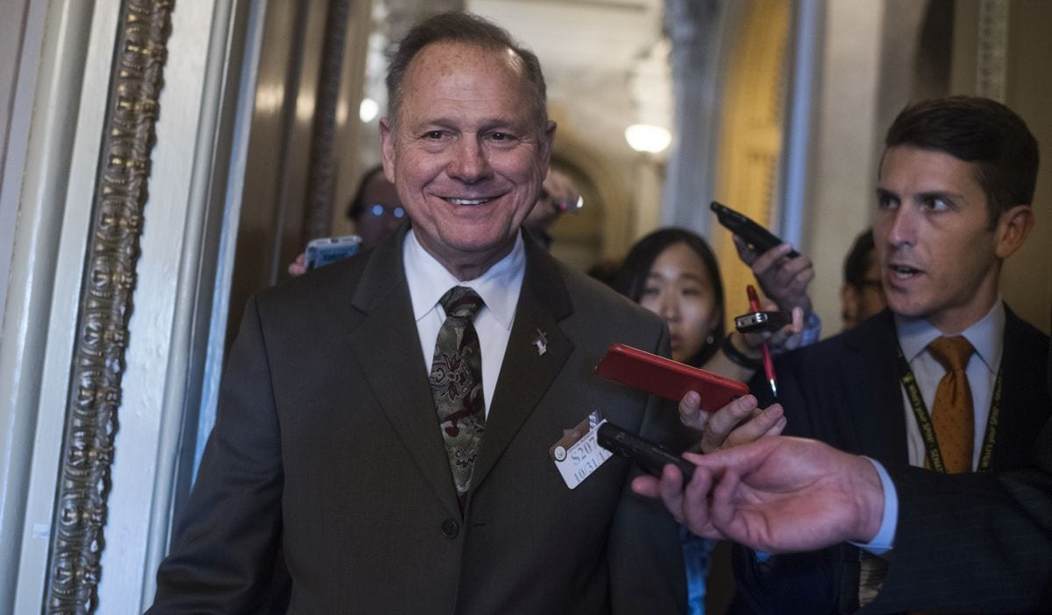On Monday, the LGBT organization Freedom Oklahoma released a video ad mocking adoption agencies that operate according to the free exercise of religion and urging voters to lobby their state senators against a religious freedom bill.
“I’m a social worker. I would rather keep a child in foster care than allow them to be adopted by parents who don’t meet my religious criteria,” one actress says in the ad, suggesting that religious adoption agencies prefer children to remain without a home.
Another woman in the ad suggested that religious adoption agencies seek to force children to reject their natural sexual orientation or identity. “I work with kids who need a home. I believe if a child is gay or transgender, they should be placed with parents who will work to straighten them out,” the woman says, presenting an advertisement for a military-style “boot camp” to “turn ‘gay’ kids straight!”
In these malicious attacks, the LGBT group twisted the truth about adoption agencies. The final scene topped off the ugly insinuations. “We have laws governing child services agencies for a reason,” Christine James-Brown, president and CEO of the Child Welfare League of America, says in the ad. “When states allow adoption decisions to be based on a worker’s individual beliefs, rather than the best interests of children, it’s children who pay the price.”
https://youtu.be/h5Aqekthx2U
This ad cunningly twisted the real religious freedom adoption issue on its head. Across the country, LGBT activists are pushing back against Christian charities’ freedom to abide by their organizations’ religious commitments. These are not the private convictions of workers but stated beliefs of the organization, which inspire donors to contribute to the organization.
Many Christian adoption agencies refuse to place children with same-sex parents or in environments that reject Christian teachings, especially on sexuality. Their freedom to do this is important, because many of these agencies work directly with churches, receive funds from donors who hold to traditional morality, and publicly abide by certain principles. This LGBT push seeks to force them to violate those commitments.
In Texas, a lesbian couple sued the federal government and the U.S. Conference of Catholic Bishops after Catholic Charities of Fort Worth refused to help them adopt a child. South Carolina Governor Henry McMaster sent a letter to Miracle Hill Ministries after a state department ruled the ministry had to place children with non-Christians, in violation of its principles and longstanding practice.
The LGBT push against Christian adoption agencies traces back over a decade. In 2006, Catholic Charities of Boston had to shut its doors after Massachusetts redefined marriage and banned “sexual orientation discrimination.” The charity was forced out of San Francisco that same year, and out of Washington, D.C. in 2010. Affiliates in Illinois had to close down as well.
The Oklahoma state Senate is considering Senate Bill 1140, which would protect child-placing agencies that choose adoptive parents based on religious convictions about sexual morality and the nature of the family. Similar laws have passed in at least seven other states, including Alabama, South Dakota, and Texas last year. Other measures are pending in Georgia, Kansas, and the U.S. Congress.
Freedom Oklahoma Executive Director Troy Stevenson claimed that the bill would deny children the right to a loving family. “We’re going to keep more kids in the system and less families from adopting,” he told the Associated Press (AP).
The state of Oklahoma works with many different placement agencies, however. “We certify foster and adoptive families who are LGBTQ all the time,” Casey White, a spokeswoman for the Oklahoma Department of Human Services, told the AP. “Even if a private adoption agency decided not to certify someone, there are many options for families to choose from.”
White’s agency oversees 8,700 children in state custody, and works with many different placement agencies, many of which gladly place children with LGBT families.
In other words, the battle Freedom Oklahoma and other LGBT groups choose to wage isn’t about making sure every child gets placed in a family, but about making sure Christian adoption agencies have to violate their consciences and place children in families built on a sexual orientation they consider sinful and contrary to God’s design for family.
Christian ministries have the right to free association and the free exercise of religion, which means they can refuse to work with people who disagree with their religious convictions.
While LGBT groups decry “discrimination,” same-sex couples do have access to adoption through other agencies, and LGBT groups are free to set up competing adoption agencies. Instead, they target organizations that disagree with their sexual morality, attempting to get social acceptance of their identity and orientation mandated by government force.
Ironically, the LGBT insistence against “discrimination” has forced Christian agencies to stop operating in certain states, actually restricting the placement services in specific areas.
Rather than Christians being the ones who would rather have children remain orphans than work with LGBT couples, the reality of the situation is the exact opposite. LGBT activists are so insistent that there be no dissent to their lifestyle that they seek to enforce it by law, even as that forces agencies to close their doors, making it less likely needy kids will be adopted.
LGBT groups should live and let live, allowing religious charities to work with whom they will, and setting up competing adoption agencies to promote their own sexual morality. If they really want more kids to be adopted, they should compete to offer the best adoption services, rather than attempting to exclude people with whom they disagree from the market.
Instead of accepting this free market approach to competition in social services, they push for a kind of established morality — attempting to dictate that all adoption agencies must accept their orientations and identities.









Join the conversation as a VIP Member